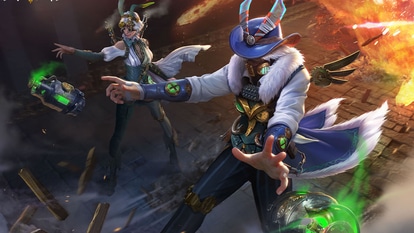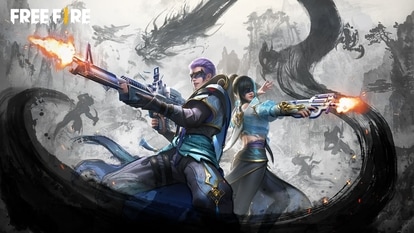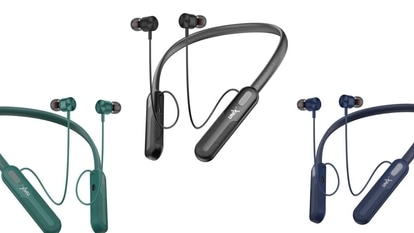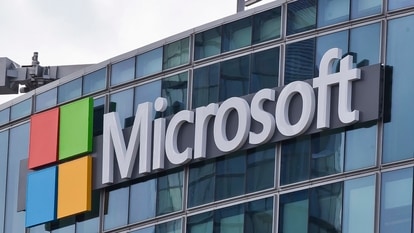Apple-Microsoft rivalry is back
Microsoft recently started running commercials pitting its Surface hybrid tablet and laptops against the iPad Pro and MacBook Pro.
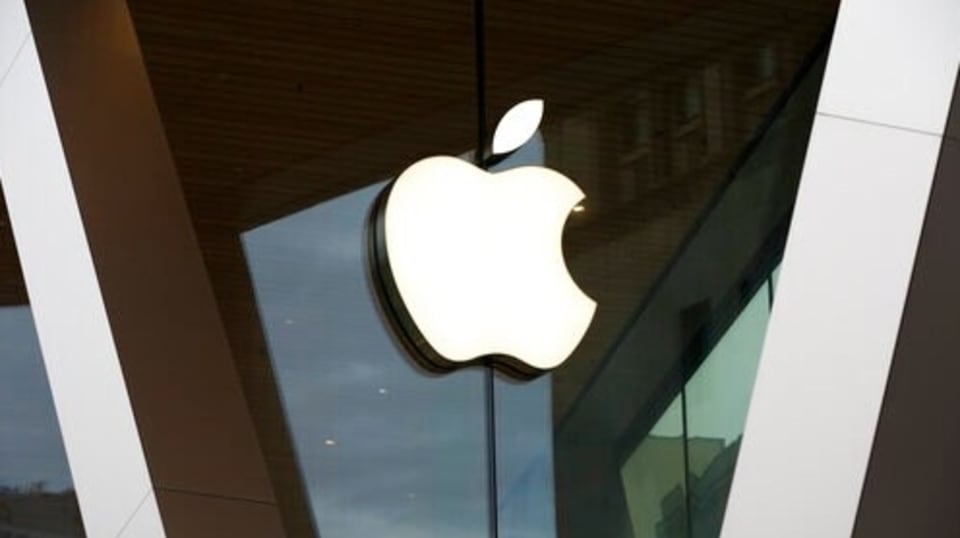
At a virtual product launch in November for Apple's Mac reboot, actor John Hodgman appeared in a nerdy, ill-fitting suit before a white backdrop. “Stop, hang on, wait, one more thing, hi, I'm a PC,” he said, reprising the popular Mac vs. PC television commercials of a decade ago that not so subtly telegraphed the idea that Apple was cool and Microsoft wasn't.
The event was held to let Mac fans know the new machines were getting a processor with more sizzle. But the subtext was unmistakable: Apple Inc.'s old rivalry with Microsoft Corp. was back.
For several years, the two companies had found reason to collaborate. Microsoft's Office and other apps began appearing on the iPad and iPhone; Apple even invited Microsoft to a product launch. Apple recently made it easier to use Xbox game controllers on Apple devices, while Microsoft made its products compatible with such new Apple features as the Apple Pencil and Magic Keyboard. Last fall, Apple even put its TV app on the Xbox.
But around the time the PC character reappeared, Microsoft began bad-mouthing Apple to regulators, saying the company's App Store was anti-competitive. The Redmond, Washington, software giant had thrown in its lot with Epic Games Inc., which was suing Apple for booting its Fornite title from the App Store and accusing the iPhone maker of monopolistic behavior. A Microsoft executive has since testified against Apple at the trial, now in its second week, telling the court that Apple's tight control of its App Store had hurt Microsoft's own gaming efforts.
The tensions are unlikely to ease once a verdict comes down because Apple and Microsoft are both looking to dominate the next big things in tech—from artificial intelligence and cloud computing to gaming, tablets, custom processors and mixed-reality headsets.
The renewed antipathy between Apple and Microsoft started about a year ago. Microsoft had developed a cloud gaming service for iPhones and iPads called xCloud. One app would let users pay a monthly fee to Microsoft and stream dozens of different gaming titles from the cloud. The service was supposed to do for gaming what Netflix did for video, appease gamers and turn Apple devices into a more powerful gaming platform backed by Xbox, one of the hottest names in the industry.
But Microsoft never launched the service in its intended form, having failed to persuade Apple to loosen App Store rules forbidding all-in-one gaming services. Originally, Microsoft was barred from launching any cloud-based games at all. But a few months after concerns over the ban on streaming apps went public, Apple tweaked the rules. Microsoft can now launch a cloud gaming service, but each game must be downloaded separately, defeating the purpose of an all-in-one solution. Now Microsoft is rolling out the service on Apple devices via the web, a much less optimal experience than a real app.
Around the same time, Microsoft President Brad Smith began urging U.S. and European antitrust regulators to examine Apple's practices. “They impose requirements that increasingly say there is only one way to get on to our platform and that is to go through the gate that we ourselves have created,” Smith told a Politico reporter. He added that he considered Apple's behaviour worse than the actions that landed his company in the antitrust hot seat more than 20 years ago.
What might have remained a resolvable dustup escalated instead once the Epic trial got underway. Lori Wright, Microsoft's vice president of business development for Xbox, testified that Microsoft is being stymied by Apple's rules when it comes to gaming, backing Epic's claims that Apple is an antitrust violator. Apple fired back, saying Microsoft earns $600 million to $700 million a year from its relationship with Epic and is simply defending the game maker because it's good for business.
Apple argued that Microsoft's Xbox download store has similar rules to Apple's, taking a 30% cut, requiring its own payment system and banning alternative digital marketplaces. Apple also said Microsoft, as an iOS developer, stands to benefit if it's forced to revamp the App Store.
“We clearly disagreed with Apple's refusal to allow game streaming via the App Store,” Microsoft spokesman Frank X. Shaw said in an email. “But that disagreement won't keep us from collaborating with Apple on other topics, as we do with Microsoft 365 on iOS and Mac devices.”
Perhaps, but there is potential for other clashes. In the booming personal computer market, where the companies compete head to head, Mac sales doubled in the first quarter, according to International Data Corporation, more than twice as fast as sales of PCs, which largely run on Microsoft's Windows operating system. While Apple holds only 8% of the computer market, its upgrades are popular with the legions of Americans who are expected to continue working from home after the pandemic subsides. Apple is also planning to release a mixed-reality headset next year, venturing into territory Microsoft staked out years ago with the Hololens. Microsoft has explored developing chips for its line of devices, echoing an Apple strategy that has helped boost sales. The two companies are also competing for talent in AI and cloud infrastructure, two key future battlegrounds. Microsoft is even back to making its own phones, and, of course, they use an operating system from another Apple foe: Google's Android.
How bad could the animus get? If the past is prologue, pretty testy. Apple co-founder Steve Jobs famously likened the launch of iTunes on Windows to handing someone in hell a glass of ice water, while Apple routinely poked fun at Microsoft software and accused the company of copying Apple's designs.
Microsoft recently started running commercials pitting its Surface hybrid tablet and laptops against the iPad Pro and MacBook Pro. Hodgman, who plays PC in the Apple ads, could be hearing from his agent.
Catch all the Latest Tech News, Mobile News, Laptop News, Gaming news, Wearables News , How To News, also keep up with us on Whatsapp channel,Twitter, Facebook, Google News, and Instagram. For our latest videos, subscribe to our YouTube channel.



















